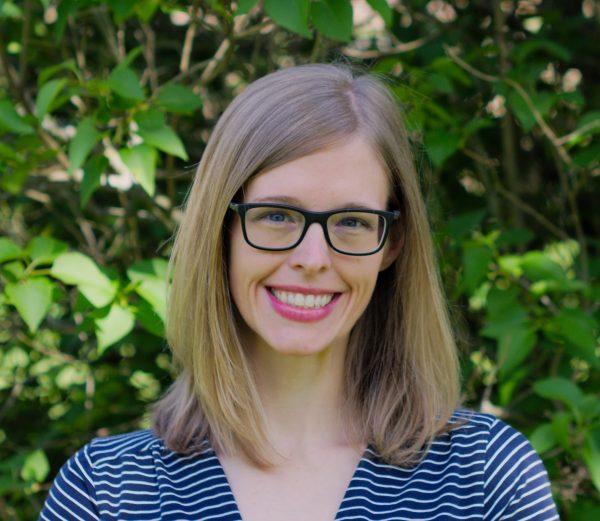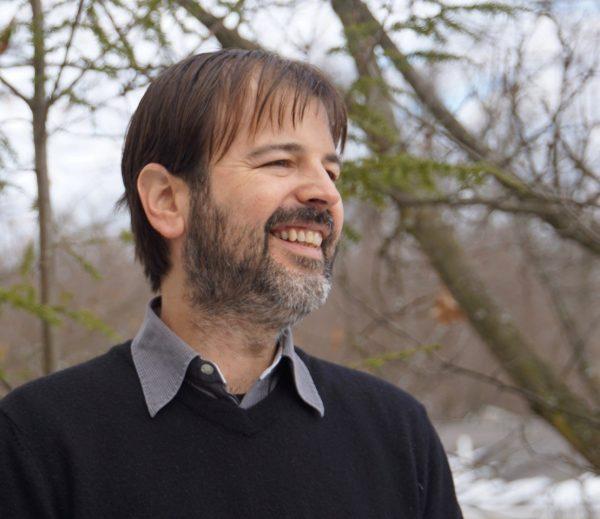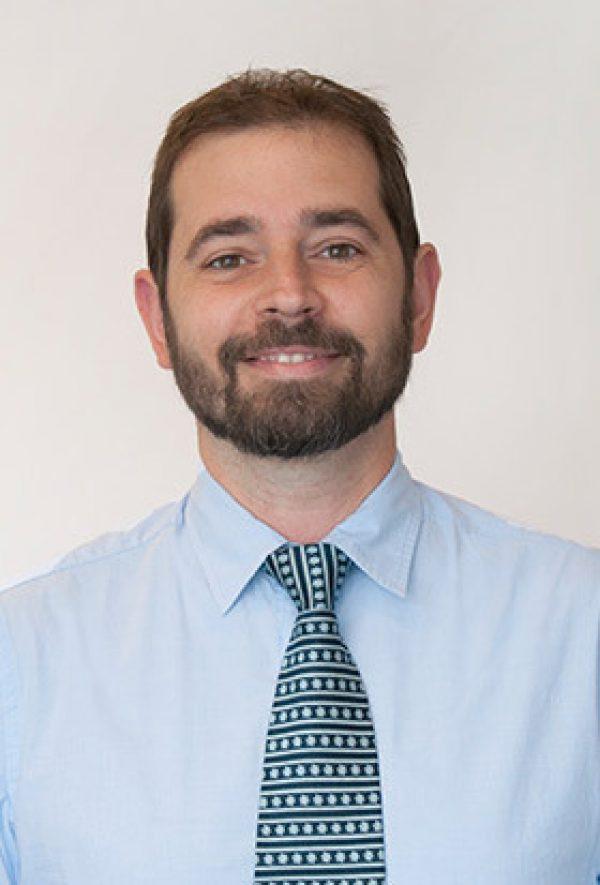Primary Mentors
Primary Mentors

Yo Jackson, Ph.D., Program Director of Training (PDT Primary Mentor)
Training Tracks I am affiliated with:
- BH - Biology & Health Track
- DP - Development Processes Track
- PT - Prevention and Treatment Track
- PADS - Policy and Administrative Data Systems Track
Dr. Jackson is a professor in the Clinical Child Psychology Program and a board-certified clinical child psychologist with over 40 publications on CM. Her primary role will be to oversee and coordinate all aspects of the training program including providing administrative oversight of recruitment activities, contracts, budgeting, onboarding, evaluations, grievances, and remediation. She has served as the PI on two R01 grants (R01MH079252, R01 MH079252) on CM and has been a Co-I with Dr. Noll as PI of the Administration Core for P50 Capstone Center (TCCMS) for the past year. Her work focuses on modeling the mechanisms of resilience for youth exposed to CM and the development of interventions to address the intergenerational transmission of trauma. She has served as the research mentor for over 50 doctoral level clinical students and has served as the primary mentor for two F-award fellowships in the past 8 years and a post doc. Her students have won numerous awards as a result of her mentorship including NSF fellowships, Doris Duke CM fellowships, APA and APS student fellowships, dissertation awards, and over 20 internal university research awards. In addition to her extensive and successful mentoring, she has held several administrative and leadership positions, including serving on the Board of Directors for Division 53 (Clinical Child and Adolescent Psychology) for the past 10 years, being an APA Fellow for the Society of Clinical Child and Adolescent Psychology, serving as Chair of the Committee for Children, Youth and Families for APA and as Director of the Multicultural Scholars Program at the University of Kansas. She further oversaw the development of trainee competency evaluation for all students in the Clinical Child Psychology Program at the University of Kansas for over 10 years (for 50+ trainees), ensuring that pre- and postdoc students were trained to meet the needs of the field at a high standard. She has also served as a clinic director for over 12 years for a community training and outpatient clinic serving youth and families, supervising over 60 trainees. She is the Associate Director of the CMSN and is uniquely qualified to help direct the proposed training program. In her role as PDT she will oversee the administration of the grant: (1) coordinate recruitment, admissions and trainee evaluation, (2) lead the Professional Development Seminar and the CM Proseminar for the post docs, (3) provide oversight and coordinate as needed with mentors on training plans and intervene on training issues when needed, (4) review products of the trainees and coordinate evaluation of the training program, (5) coordinate All Track Meetings and attend Within Track meetings to ensure good program training integration and communication, (6) working with TLs to coordinate the teaching of HDFS 521a&b each semester and ensure trainee participation in Within Track and All Track meetings and (7) help coordinate the CMT32 Summer Institute. The PDT will coordinate policy activities (e.g., policy workshop) and will oversee community engagement projects.

Hannah M. C. Schreier, Ph.D., Program Director of Research, Track Lead BH - Biology & Health Track
Training Tracks I am affiliated with:
- BH - Biology & Health Track
- DP - Developmental Processes Track
Hannah Schreier (BBH) (BE, DP Tracks and BE Track Lead) Collaborators: Allen, Font, Jackson, Lunkenheimer, Noll, Shalev, Smyth, Wadsworth, Shenk. Dr. Schreier’s research focuses on the influence of early adversity (experiences of CM; growing up in poverty) on child and adolescent chronic disease risk, especially immunological and metabolic risk markers. She is further interested in understanding the psychosocial pathways through which family and youth characteristics alter the impact of early adverse experiences on key physiological outcomes among youth. Dr. Schreier is MPI of the TCCMS Cohort Study. She is also the PI of an R01 from NHLBI investigating the impact of a coparenting intervention on parent and child cardiovascular disease risk.

Brian Allen, Psy.D.
Training Tracks I am affiliated with:
- PT - Prevention and Treatment Track
Brian Allen (Pediatrics) (PT Track) Collaborators: Shenk, Lunkenheimer, Noll, Schreier. Dr. Allen conducts research on clinical intervention with CM populations, with a focus on how developmental science can be integrated into clinical practice to enhance the effectiveness of treatments. He is the PI on an NICHD-funded study examining the use of Trauma-Focused Cognitive-Behavioral Therapy (TF-CBT) for maltreated youth and has conducted grant-funded research to examine the application of Parent-Child Interaction Therapy (PCIT) for adopted children and the development and testing of an intervention for children with problematic sexual behavior. Hi is Co-I of the TCCMS Administrative Core. He is currently supervising a postdoctoral fellow in clinical psychology and has previously mentored one postdoc and 4 and pre doc interns in clinical psychology.

Christian M. Connell, Ph.D., Track Lead PADS - Policy and Administrative Data Systems Track
Training Tracks I am affiliated with:
- PADS - Policy and Administrative Data Systems Track
- PT - Prevention and Treatment Track
Christian Connell (HDFS) (PT, PADS Tracks and PADS Track Lead) Collaborators: Font, Crowley, Jackson, Noll. Dr. Connell’s research examines behavioral, health, and system-level outcomes of youth who have been maltreated or involved in child-serving systems (e.g., child welfare, mental health, juvenile justice), as well as the effectiveness of community-based interventions to ameliorate adverse outcomes associated with maltreatment and trauma. He is Co-I on the TCCMS DOC and has extensive experience in the use of integrated administrative data systems to examine risk and protective process associated with involvement in child welfare and related systems as well as the consequences of involvement on child and family wellbeing. Additional research examines the effects of exposure to traumatic events on child psychological functioning and efforts to enhance capacity for trauma-informed care within childserving systems. Prior to joining Penn State University in 2017, he served as co-director of Yale Psychiatry Department’s Division of Prevention and Community Research, and mentored 12 predoc psychology fellows, 15 postdoc fellows, and two junior faculty members during his time at Yale University. His research has been funded by NIMH, NIDA, ACF, SAMHSA/NCTSN, and state and local government agencies

Daniel Max Crowley
Training Tracks I am affiliated with:
- PT - Prevention and Treatment Track
- PADS - Policy and Administrative Data Systems Track
Max Crowley (HDFS) (PT, PADS Tracks) Collaborators: Connell, Hymel, Font, Lunkenheimer, Miyamoto, Noll, Schroeder, Shenk. Dr. Crowley directs the Evidence-to-Impact Collaborative, a center within the SSRI. that houses the PSU Administrative Data Accelerator in partnership with the College of Health and Human Development. He is also PI of the Center for Heathy Children’s Dissemination and Outreach Core. Dr. Crowley’s research focuses on (1) strengthening methods for conducting benefit-cost analyses of preventive strategies, (2) leveraging administrative child welfare and related data to understand the fiscal impact of interventions, and (3) facilitating evidence-based policy-making through strategic investments in preventive services for children and families. Dr. Crowley is the PI on grants from the NIDA, NICHD as well as the Annie E. Casey, Laura & John Arnold, WT Grant, Michael and Susan Dell, Robert Wood Johnson and Doris Duke Charitable Foundations. Dr. Crowley also oversees the Research-to-Policy fellowship program, along with Dr. Taylor Scott, that provides doctoral and postdoctoral trainees the opportunity to work directly with policy audiences. Dr. Crowley often provides testimony and briefs Congress on issues related to the impact and financing of prevention strategies. Dr Crowley is also faculty on the PAMT T32 (NIDA) and Big Data to Knowledge (NLM) T32 training awards a PSU and serves as external faulty for the Arizona State University Prevention Training Fellowship (NIDA).

Sarah A. Font, Ph.D.
Training Tracks I am affiliated with:
- PADS - Policy and Administrative Data Systems Track
Sarah Font (SOC) (PADS Track) Collaborators: Miyamoto, Connell, Schreier, Noll. Dr. Font is a Co-I of the TCCMS DOC and conducts research on the experiences and outcomes of children involved with the Child Protective Services and foster care systems. She is PI of a NICHD R01 focusing on innovative identification strategies for understanding the implications of various experiences within the foster care system for child health and wellbeing. Her work draws primarily on administrative data and prioritizes policy-relevant research questions. She has a postdoc who will start in Fall 2019.

Erika Lunkenheimer, Ph.D., Track Lead DP - Developmental Processes Track
Training Tracks I am affiliated with:
- DP - Developmental Processes Track
- BH - Biology & Health Track
Erika Lunkenheimer (PSY) (DP, BE Tracks and DP Track Lead) Collaborators: Allen, Buss, Panlilio, Jackson, Ram, Schreier. Dr. Lunkenheimer is an Associate Director of the CMSN focused on education and training of community engagement for PSU students in the CMAS minor. She examines parent-child relationship dynamics as risk and protective mechanisms in the development of self-regulation and psychopathology. Her specific areas of expertise include harsh parenting and CM risk, individual and dyadic neurobiological and behavioral regulatory processes, and dynamic time series analytic methods. She has been funded by NICHD, NIAAA, and the Institute of Educational Sciences. She is currently the Primary mentor to 7 predoc students and has one postdoc starting in Fall 2019.

Sheridan Miyamoto, Ph.D.
Training Tracks I am affiliated with:
- PT - Prevention and Treatment Track
- PADS - Policy and Administrative Data Systems Track
Sheridan Miyamoto (NURS) (PT, PADS Tracks) Collaborators: Font, Panlilio, Schreier, Dorn, Crowley. Dr. Miyamoto’s program of research is focused on the deployment and testing of telehealth models to decrease disparities in the quality of care for victims of sexual assault in underserved communities. In collaboration with multidisciplinary network collaborators, she also studies the identification of commercial sexual exploitation of children known to child welfare agencies. She is the PI of the Sexual Assault Forensic Examination Telehealth (SAFE-T) Center, funded by the Department of Justice, Office for Victims of Crime. She has received grants from PCORI, NIH, Doris Duke Fellowship, and the Center for Rural Pennsylvania. She mentors 3 graduate students currently and has accepted a postdoc that will begin in Summer 2019.

Carlomagno Panlilio, Ph.D.
Training Tracks I am affiliated with:
- DP - Developmental Processes Track
Carlo Panlilio (EDPSY) (DP Track) Collaborators: Font, Lunkenheimer, Miyamoto, O’Sullivan, Schreier, Wadsworth. Dr. Panlilio’s research focuses on understanding the dynamic interplay between child maltreatment, context, and development, which shape individual differences in learning over time. More specifically, his published research explicates proximal developmental and learning processes impacted by early maltreatment experiences. He studies self-regulation and self-regulated learning, which mediate early adversity and later educational outcomes to identify malleable mechanisms for school-based intervention. He is co-PI on a Bainum Family Foundation grant to develop and test a trauma-sensitive curriculum aimed at improving pedagogical practice for early childhood educators. Dr. Panlilio currently mentors 3 doctoral students, has served on dissertation committees across disciplines, and served as a peer mentor for a current Doris Duke Fellow.

Idan Shalev, Ph.D.
Training Tracks I am affiliated with:
- BH - Biology & Health Track
Idan Shalev (BBH) (BE Track) Collaborators: Noll, Schreier, Shenk, Rose, Almeida, Buxton, Patterson, Ram, Sliwinski, Smyth. Dr. Shalev’s program of research is focused on mechanisms underpinning the biological embedding of stress, and their effects on health and aging. His research integrates the disciplines of molecular genetics, endocrinology, neurobiology and psychology. This systems approach integrates data sources across multiple levels of genomics, biomarkers and phenotypic data. As a Co-I on the TCCMS Cohort Study, he focuses on the effects of stress and maltreatment during early childhood. Dr. Shalev routinely provides training in his lab testing a host of biomarkers in blood, urine and saliva samples to elucidate biological embedding mechanisms in CM. His work has been funded primarily by NIH. He serves as a mentor for 3 predoc trainees in the NIA Pathways T32.

Chad Shenk, Ph.D., Track Lead PT - Prevention and Treatment Track
Training Tracks I am affiliated with:
- PT - Prevention and Treatment Track
Chad Shenk (HDFS, Pediatrics) (PT Track Lead). Collaborators: Allen, Connell, Dorn, Noll, Ram, Schreier, Shalev, Sliwinski. Dr. Shenk is a licensed clinical psychologist with specialty training in trauma exposure and behavioral interventions for the pediatric population. His basic science research centers on improving risk estimation methods in non-experimental designs and identification of putative intervention targets following exposure to child maltreatment. Together, this research identifies trajectories, biomarkers, and mechanisms of adverse health using a multiple levels of analysis approach (e.g., biological, behavioral, environmental). Dr. Shenk’s clinical trials research therefore centers on the optimization of behavioral interventions applied following exposure to child maltreatment by engaging identified targets and mechanisms more effectively. This program of research has been continuously supported by the National Institutes of Health and multiple institutional and foundational awards. Dr. Shenk’s current training opportunities involve working with T32 Fellows interested in researching contamination bias in prospective research on child maltreatment as well as observational methods for measuring and quantifying dynamic communication patterns as indicators of resilience to psychiatric disorders following exposure to child maltreatment.



